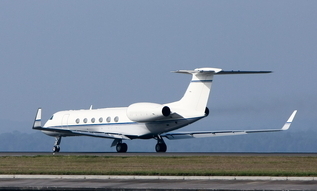Last week, we brought you a story from those party animals at the IRS Statistics of Income Division about an annual report on the 400 highest incomes in America. It turns out they're a very successful bunch — for 2009, they earned an average of $202.4 million and paid an average of $40.9 million in tax. This week, we're going to talk about a different group of taxpayers. Less rich, less famous, but maybe more successful in their own way.
week, we brought you a story from those party animals at the IRS Statistics of Income Division about an annual report on the 400 highest incomes in America. It turns out they're a very successful bunch — for 2009, they earned an average of $202.4 million and paid an average of $40.9 million in tax. This week, we're going to talk about a different group of taxpayers. Less rich, less famous, but maybe more successful in their own way.
Back in 1969, Treasury Secretary Joseph Barr was shocked to discover that 155 Americans had earned over $200,000 that year, yet paid nothing in tax. Zip. Zilch. Nada. ($200,000 isn't bad money now — back then, it had about the same buying power as $1.2 million today.) Washington huffed and puffed, then passed the "Alternative Minimum Tax," or AMT. In 1970, the new tax surprised 18,464 unhappy taxpayers. No one could have foreseen it growing into a complete "parallel" tax system, a many-headed Hydra that millions every year.
Fast-forward to today. With the AMT firmly in place, the IRS has just released a 61-page report revealing that in 2009, 20,752 taxpayers earned over $200,000 and paid — you guessed it — zero tax.





